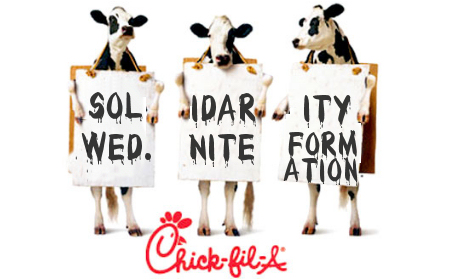The FDA is trying to give food stamps to people who do not want or need them
By A. Barton Hinkle
There are two powerful reasons for giving government aid to the poor, one
good and one bad. It alleviates human suffering, which is good. And it
increases dependence on government, which is bad.
Or at least it is bad if you believe in virtues such as personal
responsibility and self-reliance. On the other hand, if you are (let us say) a
Democratic congressman or a bureaucrat in the Department of Health and Human
Services, then swelling the rolls of those who need your help could be a very
good thing indeed. At least for you.
This might sound just the teeniest bit paranoid and nutty. But that does
not make it wrong; even paranoids can have enemies. And the past few weeks have
produced a passel of evidence that government and its principal cheerleaders
would like very much to render Americans more rather than less dependent on
them. Consider:
A few days ago the Department of Health and Human Services adopted a change
in policy that “ends welfare reform as we know it,” according to Rep. Dave
Camp, chairman of the House Ways and Means Committee. HHS has decided
to grant waivers to states that will knock out the keystone of the
welfare-reform arch: the work requirement. That requirement helped cut welfare
rolls in half. But now states will be able to “test alternative and innovative
strategies,” including “multi-year career pathways” and “a comprehensive
universal engagement system,” whatever that is. Neoliberal Mickey Kaus calls
it, probably correctly, a
“stay-on-the-dole-while-we-keep-you-busy-with-anything-other-than-actual-work”
system.
The Department of Agriculture also has been doing its part for the welfare
state: It has been producing Spanish-language radio novelas dramatizing the
desirability of signing up for food stamps, or whatWashington calls the
Supplemental Nutrition Assistance Program (SNAP). “Will Claudia convince Ramon
to apply for SNAP? Don’t miss our next episode of Hope Park!” concluded a
typical spot. (Once word of the campaign spread, the department deep-sixed it.)














.jpg)
.jpg)


